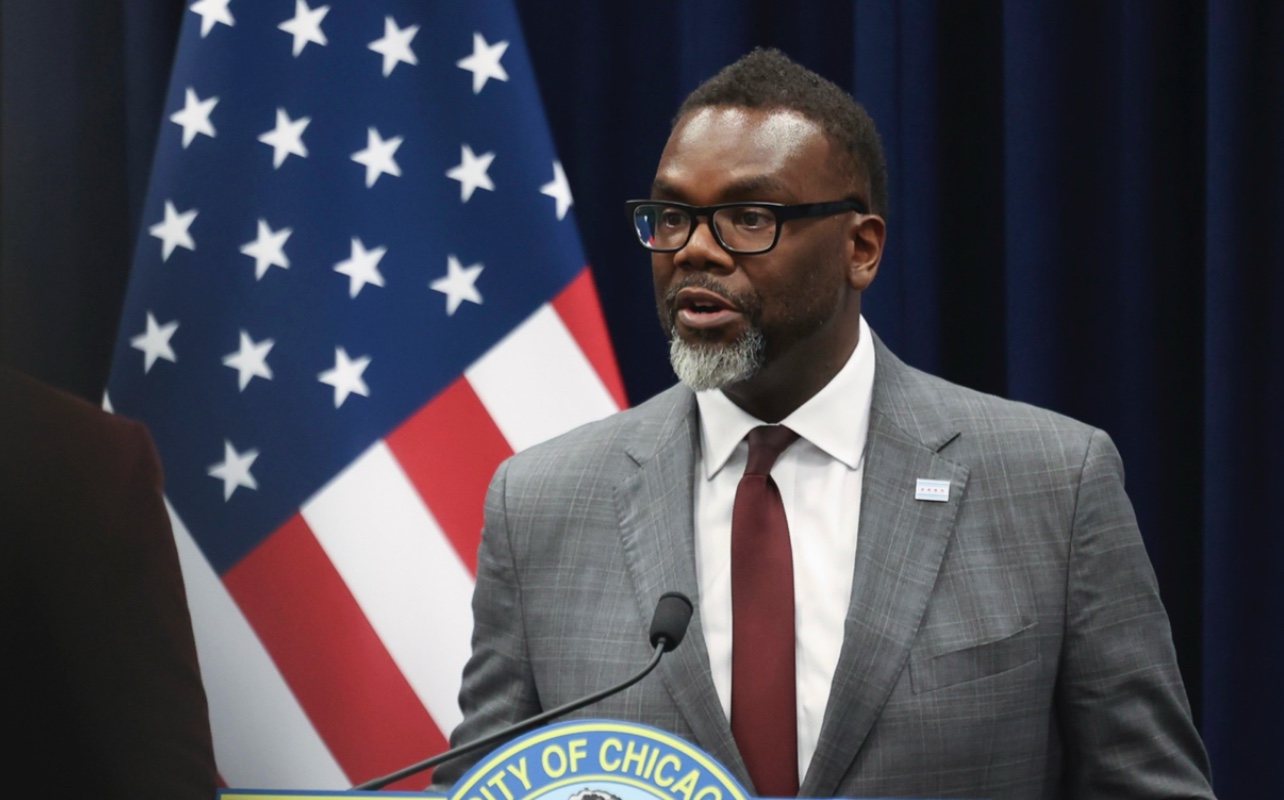
May 1, 2024
Chicago Mayor Relaunching Guaranteed Basic Income Program
In 2023, thousands of Chicago families participated in the program; several individuals indicated to WEBZ and the Chicago Sun Times that they wished the program had lasted for longer.
Chicago Mayor Brandon Johnson is relaunching the city’s guaranteed basic income program (GBI) to exhaust $374 million in federal money earmarked for community projects. Although it appears the city has been slow in spending this money since 2021, the popular program should help them spend it by the 2026 deadline.
It is important to the Johnson administration that the money is spent, and according to Mayor Johnson’s Budget Director Annette Guzman, “The bulk of the dollars on the community initiative side will go out and have gone out, under this mayor. And so it is really critically important to him that we get this done correctly and that we return $0 to the Treasury, and so that’s what our focus is.”
In 2023, thousands of Chicago families participated in the program; several individuals indicated to WEBZ and the Chicago Sun-Times that they wished the program, which allowed them to cover emergencies and keep their finances above water, had lasted longer. According to Guzman, details on the next round of guaranteed basic income payments are being finalized.
Johnson’s administration continues spending money on what they refer to as “low-risk” programs to streamline the remaining funds to the Chicago community. Over $80 million will be split between 53 programs, creating a grand total of $63 million for the GBI program, $66 million for a Youth Opportunities Program that connects Chicago youth with jobs, $33 million in funds for small businesses and nonprofit organizations, and $10 million in financial assistance for survivors of gender-based violence.
Although the administration is trying to rush to meet the deadline to spend the pandemic-era funds, an ordinance pushed by Alderman Bill Conway might change that. Conway’s proposal requires City Council approval for any project exceeding $1 million in COVID-19 relief funding. However, the proposal, introduced after $95 million in funding was reallocated to support and house migrants headed to Chicago, has yet to be heard.
As WGN-TV reports, the initial guidelines for the GBI program, which originated from Johnson’s predecessor, Lori Lightfoot, are likely to remain intact. That pilot program dictated that recipients live within Chicago city limits, be at least 18 years of age, have experienced economic hardship due to the pandemic, and be at or below a threshold of 250% of the federal poverty line.
In an April 30 press release, Johnson indicated his administration’s commitment to using federal funds to assist Chicago residents.
“When I came into office, I wanted to ensure the money the City received from the federal government was utilized to help the communities most impacted by the pandemic and the many long-standing inequities it exacerbated,” Mayor Johnson said.
“My administration has developed a plan to ensure that these funds are being used strategically to directly and concretely impact the lives of people across Chicago.”
Guzman added, “The Mayor tasked OBM with identifying any roadblocks to getting funding to the communities that need it the most. This meant, most importantly, ensuring the organizations that assist the city with program administration are paid for their work in a timely manner. Through our work with City departments that administer ARPA-funded programs, we believe we have set the City on a path to successfully maximizing the impact of these initiatives.”